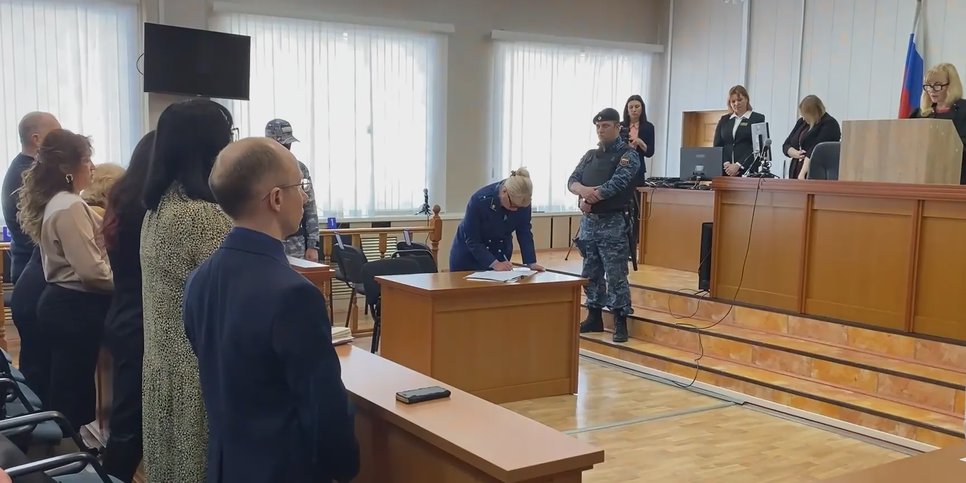The believers on the final day of the appeal hearings, October 15, 2024
The believers on the final day of the appeal hearings, October 15, 2024
Thirteen Believers, Men and Women, Will Serve Suspended Sentences. Court of Appeal Upheld the Decision of the Magadan Court
Magadan RegionThe verdict in the large-scale case of believers from Magadan — seven men and six women aged 32 to 73 — entered into force on October 15, 2024, by decision of the Magadan Regional Court. The prosecutor sought to change suspended sentences to prison terms for some of them, but the panel of judges supported the decision of the court of first instance.
All of the believers disagree with the guilty verdict and the appeal decision, according to which they will serve suspended sentences from 3 to 7 years. In their appeals, they drew attention to the absence of corpus delicti in their actions and stated that, according to the RF Constitution, they had every right to meet to discuss the Bible and to associate.
In her appeal, prosecutor Marina Shvyreva requested tougher sentences for some of the believers. For example, she requested 6.5 and 7 years in a penal colony for Ivan Puyda and Konstantin Petrov, respectively.
Most of the convicted persons noted that reading holy texts, participating in joint meetings for worship and in community life, as well as striving to tell others about their beliefs are generally accepted ways of expressing any Christian faith. The believers came to the conclusion that the court mistakenly regarded lawful behavior of Jehovah's Witnesses as unlawful actions of an extremist nature. They also noted that the court did not establish the motives of religious hatred or enmity in their actions and did not determine against which specific social group they acted.
Galina Dergacheva expressed her position on the verdict as follows: "By their actions, the state authorities present me and my fellow believers in a bad light before society, contribute to the spread of prejudice and form the impression that Jehovah's Witnesses are a dangerous and dubious sect." She added: "The state and all officials are obliged to maintain neutrality and impartiality. Therefore, they do not have the right to assess the legitimacy of religious beliefs or determine what can be believed and what not."













